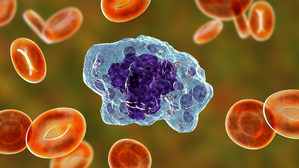Health
New macrophage discovery could revolutionize lung repair therapy

New Delhi, Aug 5
Researchers have uncovered a previously unknown population of macrophages that play a crucial role in lung repair following respiratory viral infections. This significant discovery could transform our understanding of the immune response and pave the way for innovative regenerative therapies.
Respiratory viruses, while often causing mild symptoms, can lead to severe health issues, as evidenced by the Covid-19 pandemic. Such infections can damage large areas of the lungs, especially the alveoli, which are essential for gas exchange. Ineffective repair of these structures can result in acute respiratory distress syndrome (ARDS) or long-term reductions in lung function, leading to chronic fatigue and diminished exercise capacity.
While the role of macrophages during the acute phase of respiratory infections is established, their function in the recovery phase has been less understood. The GIGA Institute’s study reveals that a distinct group of macrophages, characterised by unique markers and transiently recruited during early recovery, significantly contributes to the regeneration of pulmonary alveoli. The research, led by Dr. Coraline Radermecker and Prof. Thomas Marichal, utilised advanced technologies, including flow cytometry, fluorescence microscopy, and single-cell RNA sequencing while Dr. Cecilia Ruscitti conducted the study.
“Our findings reveal a novel mechanism for alveolar repair involving these atypical macrophages. We have identified their characteristics, origin, and role in regenerating alveolar cells, specifically targeting type 2 alveolar epithelial cells,” says Dr. Radermecker. Dr. Marichal adds: “This study challenges the notion that post-infection macrophages are solely pathogenic. Enhancing or stimulating these macrophages could lead to new treatments for improving lung regeneration and managing complications from severe respiratory infections.”
The discovery offers new potential for treating respiratory diseases, likening the repair process to a garden being restored after a storm by specialised gardeners.



































